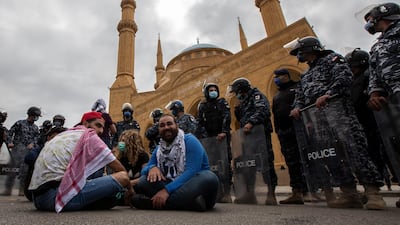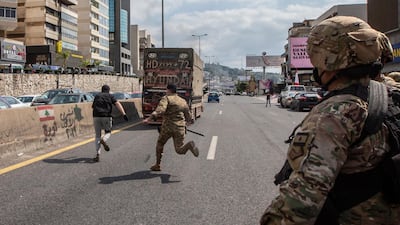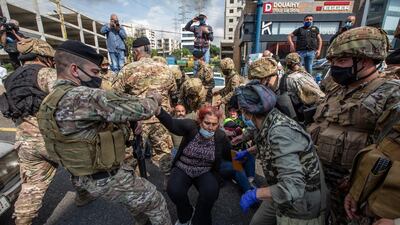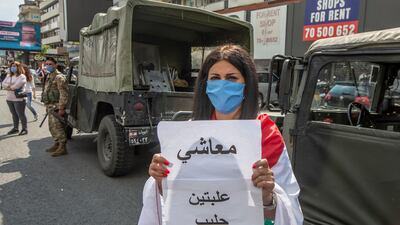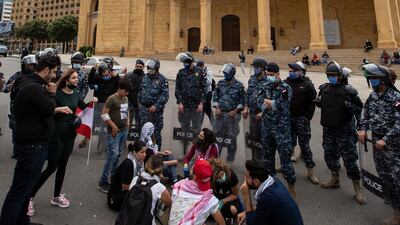A protester died on Tuesday of wounds sustained during clashes with the Lebanese army in the northern city of Tripoli as the country sinks deeper into a severe economic crisis.
“A young man from the Al Saman family died from his wounds after night clashes between elements of the army and infiltrators in the popular movement’s sit-in in Al Nour square against the increase of the price of the dollar and deteriorating living conditions” reported the state-run National News Agency.
The NNA did not give the dead man’s full identity, but activists believe his name is Fawaz Fouad Al Saman.
“My brother Fawaz Fouad Al Saman, 26, was martyred as a result of wounds sustained from live bullets during clashes between protesters and the army yesterday in Tripoli,” posted Fatima Fouad on Facebook on Tuesday morning.
A security source would not comment on the use of live bullets in Tripoli last night, but videos on social media show dozens of men running away from what sounds like live bullets in Sahet Al Nour square, where protesters have congregated in recent months.
“This is the revolution of hunger,” said the man filming. “They are shooting live bullets at us.”
Riots erupted on Monday evening in Tripoli, with protesters vandalising several banks and throwing Molotov cocktails and a hand grenade at army vehicles, lightly injuring soldiers, according to an army press release.
“The army command warns that it will not tolerate anyone violating peace and stability and whoever who tries to endanger civil peace,” it said.
Local television LBCI reported that 35 civilians and four soldiers were injured in the clashes on Monday evening.
According to the army, 40 soldiers were wounded and nine civilians were arrested for throwing fireworks and rocks at the house of MP Faisal Karami.
Banks in Tripoli have closed due to the violence.
On Tuesday morning, there was "cautious calm and very light traffic" amid "the widespread deployment of the army and the ISF in all streets of the city”, reported the NNA
“The army carried out several raids to arrest those who violate security, especially those who … smashed banks’ facades and threw fire bombs at ATMs," said the NNA.
In other parts of the country, protesters blocked motorways during clashes with police on Monday night, ignoring a night curfew imposed to curb the spread of the coronavirus.
Fifty-four soldiers were injured across Lebanon on Monday, the army said.
This is the third death directly related to protests that started last October.
Alaa Bou Fakhr, a 38-year old father of three, was killed by a member of the army intelligence at a roadblock on November 12.
Ahmad Tawfiq, who was in his twenties, died on February 17 of wounds sustained during a protest in Tripoli in November. Activists believe he was injured by a bullet fired by the Lebanese army, but the army denies the claim.
Four other people have died in accidents or brawls related to the demonstrations since October 17.
Demonstrations dwindled after a new government was sworn in last January but picked up again in recent days as the economic crisis, aggravated by confinement measures caused by the coronavirus pandemic continues to worsen.
The value of the local currency has plummeted to 4000 Lebanese pounds to the dollar though it remains officially pegged at around 1,507 to the dollar. The government is trying to force currency traders to not sell above 3,200 with little success.




